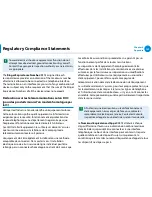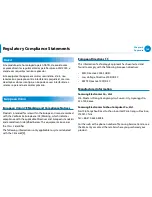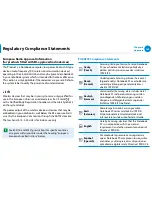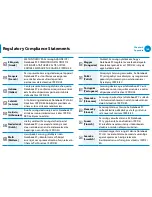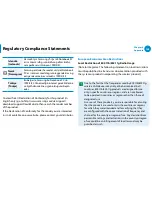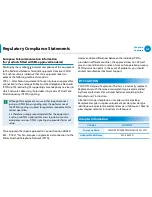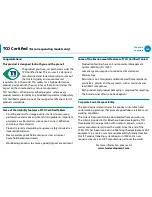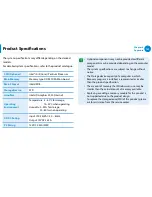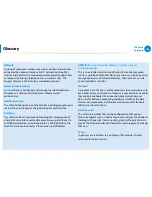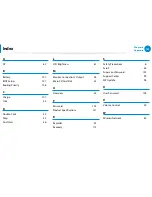
154
155
Chapter 6
Appendix
Network
A group of computers and devices, such as printers and scanners,
connected by a communications link. A network can be either
small or large and can be connected permanently through cables
or temporarily through telephone lines or wireless links. The
biggest network is the Internet, a worldwide network.
Network Administrator
A user who plans, configures and manages network operations.
Sometimes, a network administrator is called a system
administrator.
Notification Area
This refers to the right area of the Taskbar including program icons
such as the volume control, the power options and the time.
Partition
This refers to the act or practice of dividing the storage space of
a hard disk drive into separate data areas known as partitions. If a
100GB hard disk drive is partitioned into 2 x 50GB partitions, the
hard disk drive can be used as if there are 2 hard disk drives.
PCMCIA( Personal Computer Memory Card International
Association) card
This is an extended card slot specification for mobile computers
such as a notebook computer. Not only a memory, device but also
most peripherals such as hard disk drives, LAN cards, etc. can be
connected to this card slot.
Protocol
A protocol is a set of rules used by computers to communicate with
each other across a network. A protocol is a convention or standard
that controls or enables the connection, communication, and
data transfer between computing endpoints. It defines the data
transmission procedures and the transmission medium for more
efficient network functions.
Quick Launch
This refers to a toolbar that can be configured so that you can
launch a program such as Internet Explorer or display the Windows
Desktop with one click. You can add any icon to the quick launch
area of the Taskbar and launch frequently used program by clicking
that icon.
Server
In general, a server refers to a computer that provides shared
resources for network users.
Glossary
Summary of Contents for ATIV Smart PC Pro XE500T1C
Page 1: ...User Guide ...

